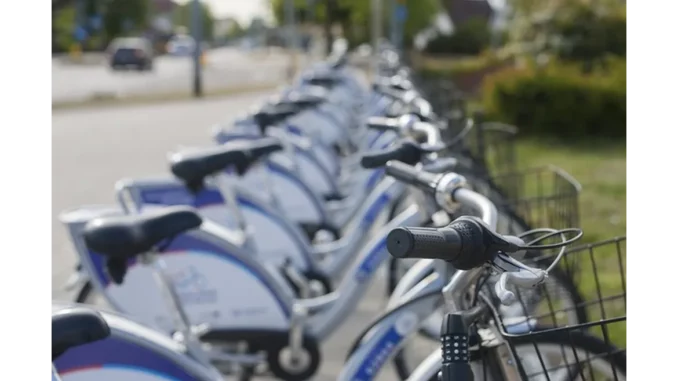
Cycling has long been heralded as a paragon of sustainable transportation, offering an array of benefits that extend well beyond individual health improvements. The act of cycling to work not only enhances physical wellbeing and productivity but also contributes to wider public health improvements and a reduction in carbon emissions. Recognising these advantages, numerous governments worldwide have actively promoted cycling through various policy measures, interventions, and initiatives. Urban centres and smaller towns alike have encouraged workplaces to adopt bike-friendly amenities, such as secure bike parking and storage, alongside shower and changing facilities—collectively known as end-of-trip facilities. While these amenities are crucial for fostering a cycling culture, their presence or absence can significantly influence an individual’s decision to cycle to work.
Air quality is vital in planning. See how Focus360 Energy can assist.
Despite the clear desirability of these facilities, the number of office buildings equipped with bike storage and shower amenities remains limited. Moreover, the economic value of such provisions has not been thoroughly explored. This study aims to bridge this gap by investigating whether the presence of cycling-supportive facilities could add tangible value to office buildings. Specifically, we examine if office buildings with bike storage and shower facilities command a rent premium and how this premium varies by location and region within England, independent of any premium associated with BREEM certification.
Utilising data from office buildings across England as of the end of 2021, our study employs hedonic pricing techniques to discern the financial impact of end-of-trip facilities. The findings reveal that buildings equipped with bike storage and shower facilities do indeed secure rent premiums. These premiums are not uniform but rather vary depending on the location and region. The variation in premium levels is primarily driven by the shortage of supply of these facilities, suggesting a market demand that has yet to be fully met.
The implications of these findings are manifold. For developers and property managers, the inclusion of end-of-trip facilities could be a strategic investment, potentially enhancing the marketability and rental income of their properties. For policymakers, the results underscore the importance of incentivising the provision of such amenities as part of broader urban planning and sustainability initiatives. By fostering an environment that supports cycling, cities can reap the benefits of reduced traffic congestion, lower pollution levels, and healthier populations.
Furthermore, for employers, the provision of bike-friendly amenities can be seen as part of corporate social responsibility initiatives, promoting a healthier, more productive workforce. The benefits extend to employees who can enjoy improved physical health and a more enjoyable commute. The societal advantages, including enhanced public health and reduced environmental impact, create a compelling case for broader adoption of cycling-supportive infrastructure.
In essence, the study underscores the multifaceted benefits of incorporating end-of-trip facilities in office buildings. By highlighting the economic value of such amenities, it provides a compelling argument for their inclusion in future developments. As cities and towns continue to grapple with issues of sustainability and urban mobility, the promotion of cycling through the provision of supportive infrastructure emerges as a practical, beneficial solution for all stakeholders involved.


Be the first to comment